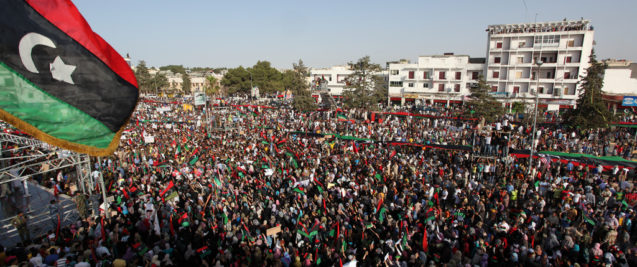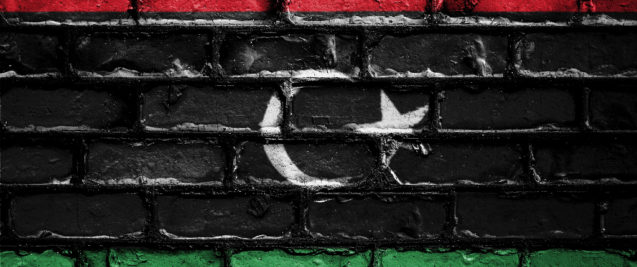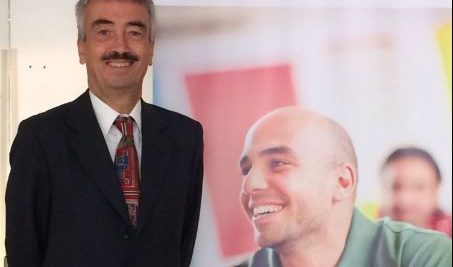23rd March 2021
Tripoli, Libya
In the decade since Libya’s 17 February Revolution, we have seen major global changes: growing challenges such as climate change, Covid-19, organised crime and terrorism; rapid technological change; rising powers especially in the Indo-Pacific. As Ambassador, I often hear from Libyans who are curious not just about the UK’s approach to Libya, but also about […]
Read more on A changing world – the UK’s Integrated Review and Libya | Reply
21st May 2018
Tripoli, Libya

Over a week ago, 14 innocent civilians were killed in a grotesque terrorist attack on the streets of Libya’s capital. Those who died at the Higher National Elections Commission were working for a stronger Libya and in the interests of the Libyan people. I offer my sincerest condolences to the families of those who lost […]
Read more on ”The High National Elections Commission & Anniversary of Manchester Attack” | Reply
10th April 2018
Tripoli, Libya

When I became British Ambassador to Libya over a month ago, I promised to travel and meet people from across Libya. Only by living in Libya, as I do, and by meeting people from across the country can a diplomat truly understand Libya and the challenges we must face together. In the past few weeks […]
Read more on “Who lives sees, but who travels sees more” Ibn Battuta | Reply (2)
8th November 2017
Tripoli, Libya

Corruption is the scourge of countries trying to lift themselves out of poverty. Around the world, politicians and officials are putting their hands in the till and stealing their country’s wealth. Their actions benefit narrow, powerful elites by allowing them to cream off cash and benefits and favour their friends, family and fellow felons. Their […]
Read more on Corruption, Crime and Complacency | Reply (3)
13th June 2017
Tripoli, Libya
The United Kingdom went to the polls last week. Over 32 million people voted for 3,304 candidates for the 650 seats in the House of Commons. This turnout was higher than in previous elections: 68.7% of registered voters went to their polling station, including 72% of young people; the latter figure up from 40% in […]
Read more on Elections: the best form of democracy? | Reply
20th April 2017
London, UKTripoli, Libya
Jon Worgan, 2nd Secretary Political, on how @UKinLibya built their 200k+ following and used twitter to cross borders and bridge political divides. Almost half of Libya’s young population use social media. It was a unifying force during Libya’s revolution, but is now more often a driver of division. Getting our digital comms right is hard […]
Read more on Twiplomacy from Tripoli | Reply
31st March 2017
Tripoli, Libya
Social media is a global phenomenon. 1.8 billion people worldwide are on Facebook; 317 million use Twitter; Youtube has more viewers than most TV stations. It has become a powerful political tool too. World leaders use social media to broadcast their views. After last week’s terrorist attack in London, Prime Minister Theresa May used Facebook […]
Read more on Trolling from Tripoli | Reply
30th January 2017
Tripoli, Libya
“Location, location, location” is a favourite slogan of estate agents. If you’re buying a house or a flat, the location is crucial. Is it close to shops, transport, schools? Is it quiet and peaceful? And who are the neighbours? Location is equally important in international politics. Geography defines the nation. If there are mountains, invasion […]
Read more on Geography Rules the World | Reply (7)
16th December 2016
Tripoli, Libya
Today is the first anniversary of the signing of the Libya Political Agreement (LPA) in Skhirat, Morocco. I well recall the euphoria, expectation and excitement of the moment. There was a sense that the divisions and polarisation that had plagued Libya since the revolution were over. Now was the time to rebuild, restore and recover […]
Read more on One Year After Skhirat | Reply (4)
28th October 2016
Tripoli, Libya

English is the most widely spoken language in the world. Chinese is number one for the number of native speakers, but with 400 million mother-tongue speakers and at least as many using it as a second language, English has become the world’s main communication tool. How did a language brought to Britain by settlers from […]
Read more on The Power of English | Reply (2)




